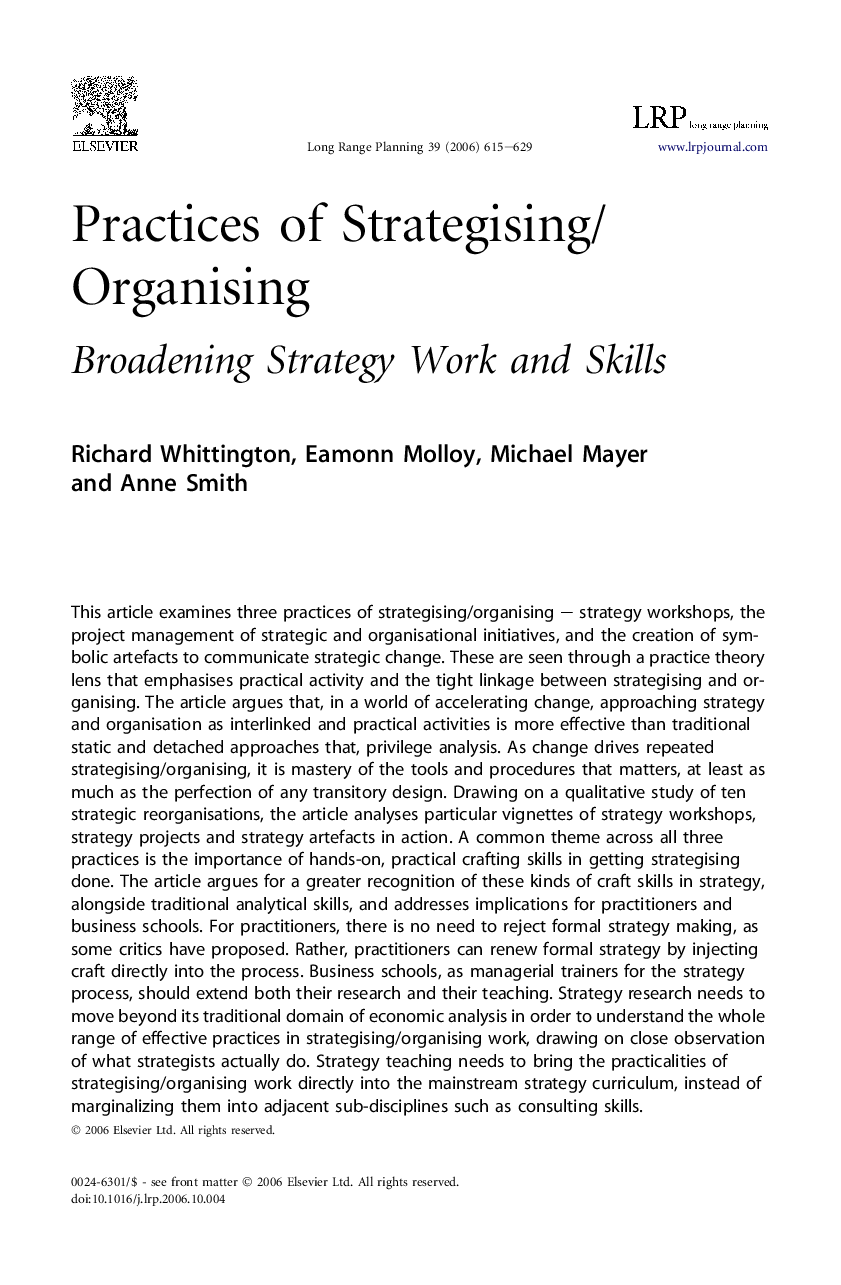| Article ID | Journal | Published Year | Pages | File Type |
|---|---|---|---|---|
| 1021709 | Long Range Planning | 2006 | 15 Pages |
This article examines three practices of strategising/organising – strategy workshops, the project management of strategic and organisational initiatives, and the creation of symbolic artefacts to communicate strategic change. These are seen through a practice theory lens that emphasises practical activity and the tight linkage between strategising and organising. The article argues that, in a world of accelerating change, approaching strategy and organisation as interlinked and practical activities is more effective than traditional static and detached approaches that, privilege analysis. As change drives repeated strategising/organising, it is mastery of the tools and procedures that matters, at least as much as the perfection of any transitory design. Drawing on a qualitative study of ten strategic reorganisations, the article analyses particular vignettes of strategy workshops, strategy projects and strategy artefacts in action. A common theme across all three practices is the importance of hands-on, practical crafting skills in getting strategising done. The article argues for a greater recognition of these kinds of craft skills in strategy, alongside traditional analytical skills, and addresses implications for practitioners and business schools. For practitioners, there is no need to reject formal strategy making, as some critics have proposed. Rather, practitioners can renew formal strategy by injecting craft directly into the process. Business schools, as managerial trainers for the strategy process, should extend both their research and their teaching. Strategy research needs to move beyond its traditional domain of economic analysis in order to understand the whole range of effective practices in strategising/organising work, drawing on close observation of what strategists actually do. Strategy teaching needs to bring the practicalities of strategising/organising work directly into the mainstream strategy curriculum, instead of marginalizing them into adjacent sub-disciplines such as consulting skills.
